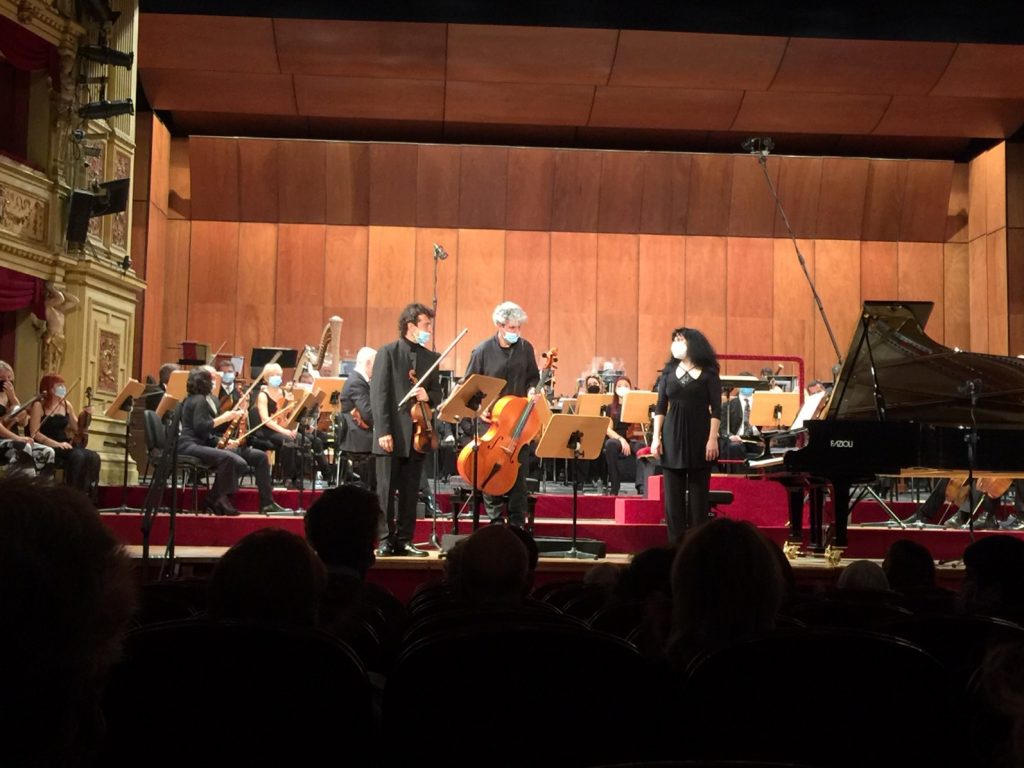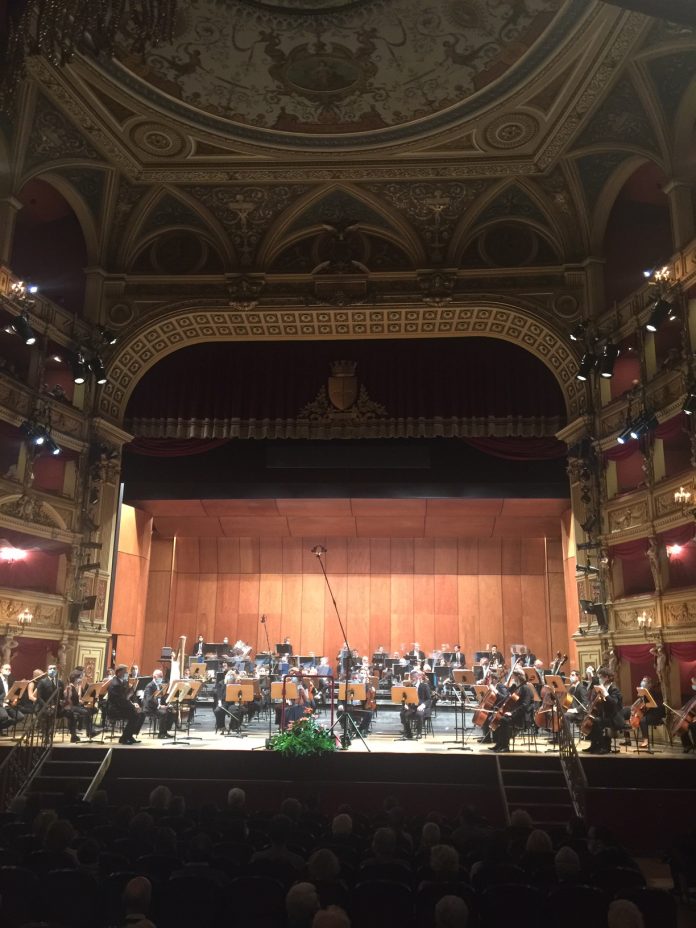By Alessandra Ressa
The second wave of COVID-19 has hit Europe harder than predicted. Because of that, a partial lockdown has been implemented again. Italy, the first country in Europe to close theaters due to the virus last February, then managed to re-open them in June, once again closed both them and cinemas starting October 26.
The news about the latest shutdown, which had been circulating among Italians throughout the weekend, was announced on Sunday, October 25, by Italian Prime Minister Giuseppe Conte. The step was taken after Italy reported a new daily record of coronavirus cases, in the hope of curbing the infection rate and avoiding the need for another total lockdown.
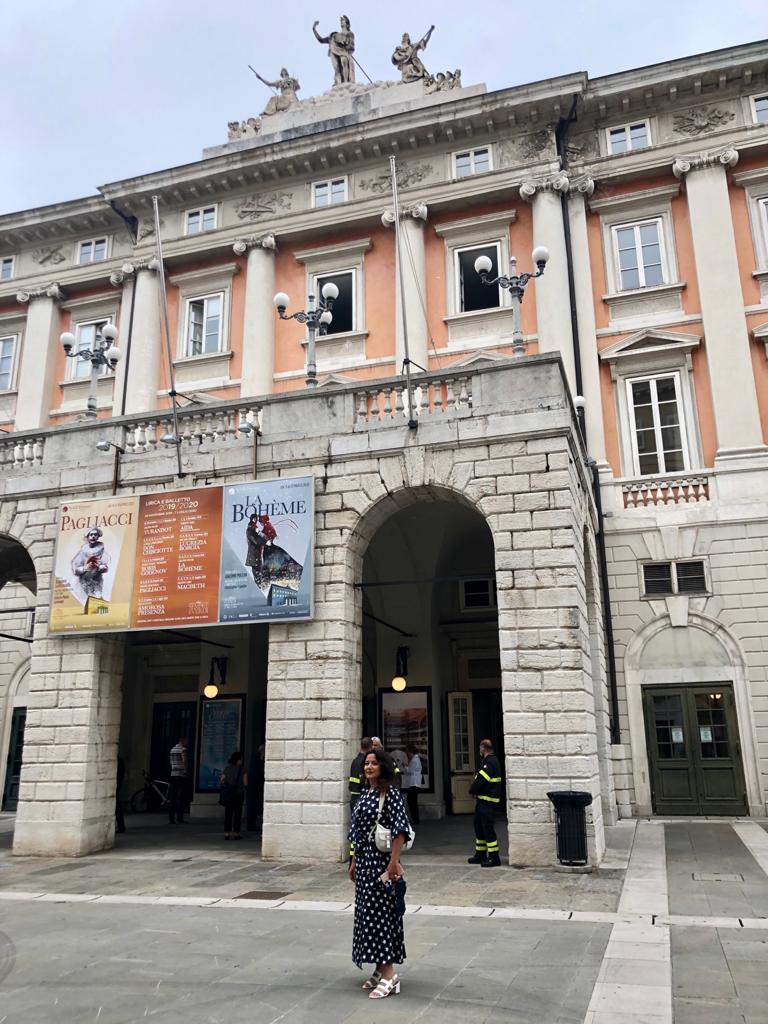
What will the future hold for Italian theaters? Will they be able to reopen? Culture in Italy, and theaters in particular could be hit the hardest by this second wave of restrictions. The drastic reduction of audience capacity, along with months of inactivity, had already brought them to their knees. It was with great effort they were able to reopen last June.
Trieste’s Verdi in particular, which can’t really count on mass tourism like Venice’s Fenice, nor on young audiences, offered a series of short matinée Sunday concerts. By selecting the most popular composers and tunes at very affordable prices they were hoping to attract a wider and more heterogeneous audience. They did not take into account, however, that for Triestini beach-time between May and October is vital.
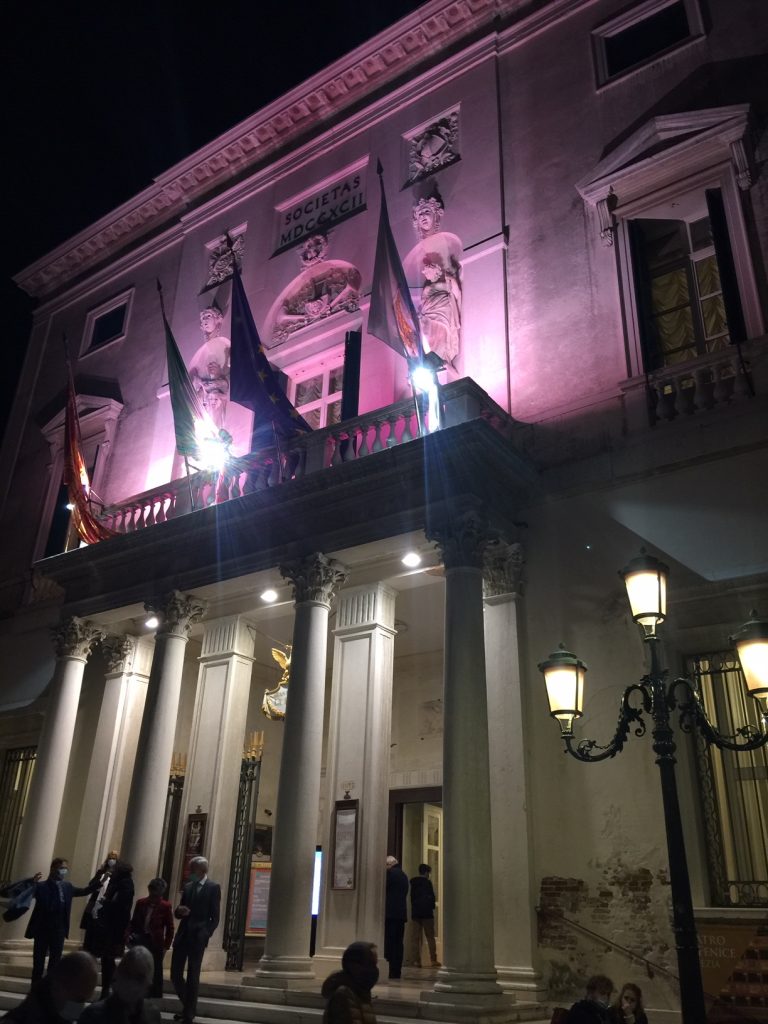
Blaming it all on Covid-19 wouldn’t be entirely fair. Italian theaters have been struggling to survive way before this unexpected global crisis occurred. Opera and concert halls have been suffering decades of neglect due to increasing government cuts in the sector.
This happened notwithstanding the fact that Italian opera especially has always been appreciated and exported all over the world. As fewer public funds were invested in culture, Italians, and the new generations in particular, inevitably lost interest; to the point where a good portion of the population today has never set foot inside a theater, has never listened to classical music, and does not know the name of a single Italian composer.
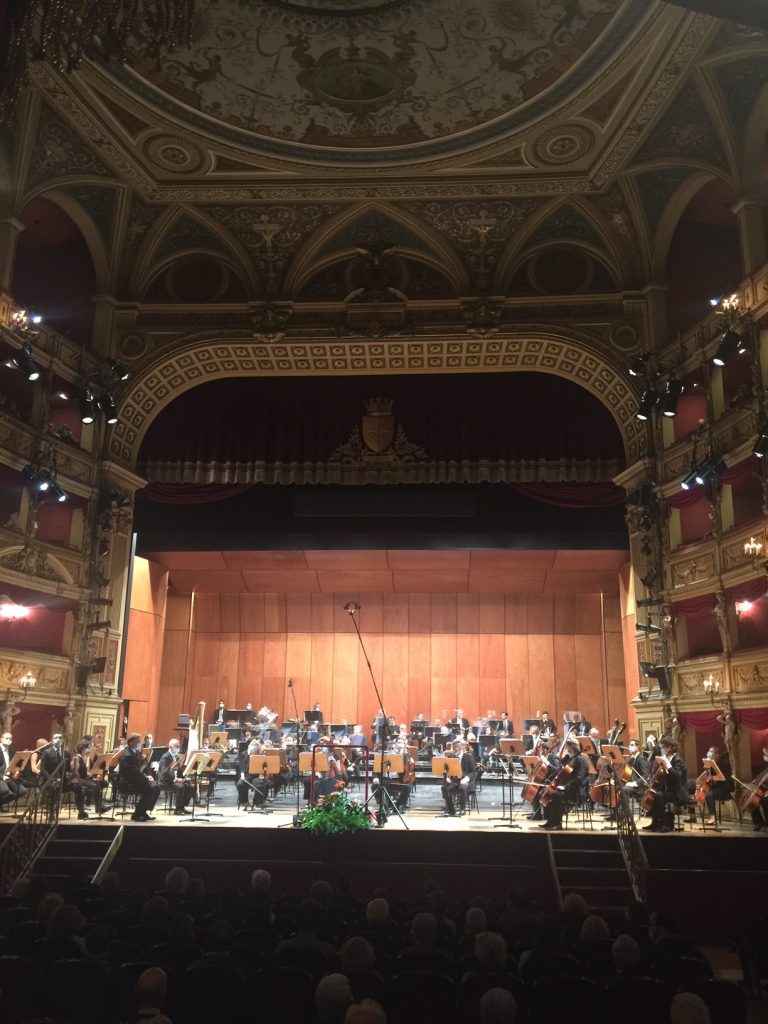
It is not a mere coincidence that, according to 2019 Piaac-OCSE research, 28% of Italians between 18 and 65 are functionally illiterate. It means they are “inadequate to manage daily living and employment tasks that require reading skills beyond a basic level”. Italians therefore appear to be among the least literate in Europe when it comes to general culture. Apparently, this cultural decline has been going on for the last 150 years!
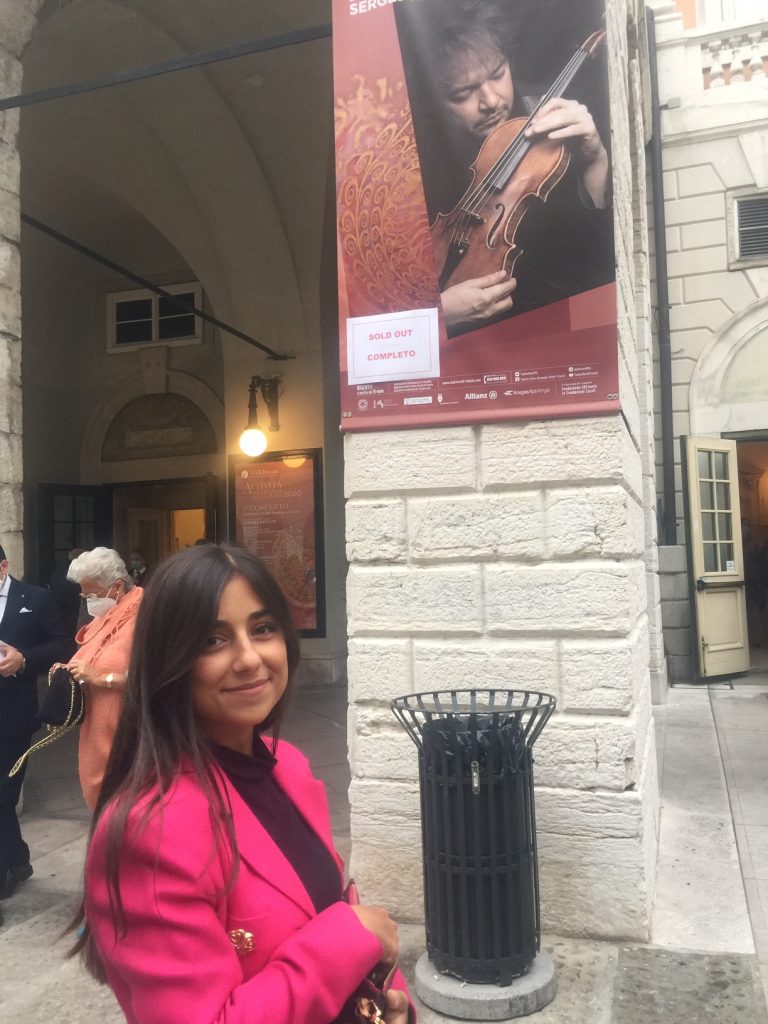
Personally, I can’t imagine what life would be without opera and concerts. When it came to deciding where to live in Italy, the only luxury I wasn’t ready to compromise on was the presence of an accessible and affordable opera theater. Of course, Trieste has much more than that, as you probably already know.
To think that only last week I was comfortably sitting in a box at La Fenice, in Venice, enjoying Figaro’s matchmaking machinations. Gioachino Rossini’s masterpiece, The Barber of Seville, always puts me at peace with the world. And La Fenice never fails to please me with its selection of excellent young Italian artists and successful productions.
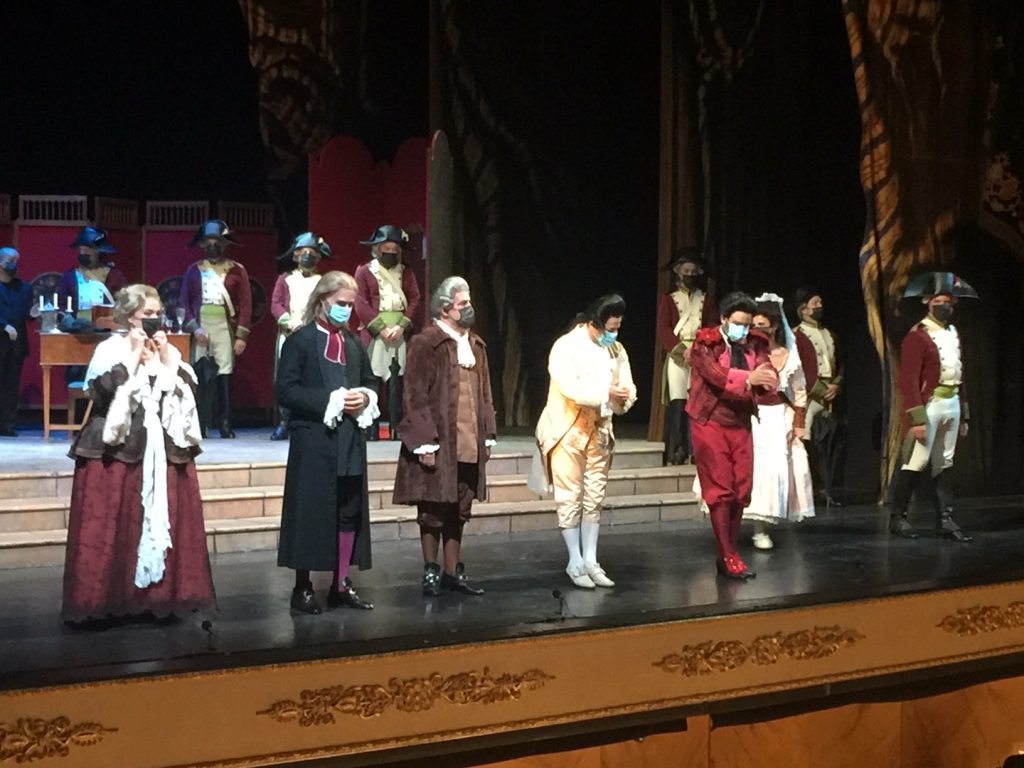
I particularly appreciated this colorful performance delivered superbly with the perfect interlocking of voices, so typical of Rossini. Talented tenor, Antonino Siragusa, who has been happily living in Trieste for years while performing on the most prestigious stages, was very much appreciated as Il Conte di Almaviva. And what with Maestro Sardelli’s red socks, a perfect match with artistic director Morassi’s? The match was apparently unintentional, probably meant to bring luck. It caused laughter amid applause.
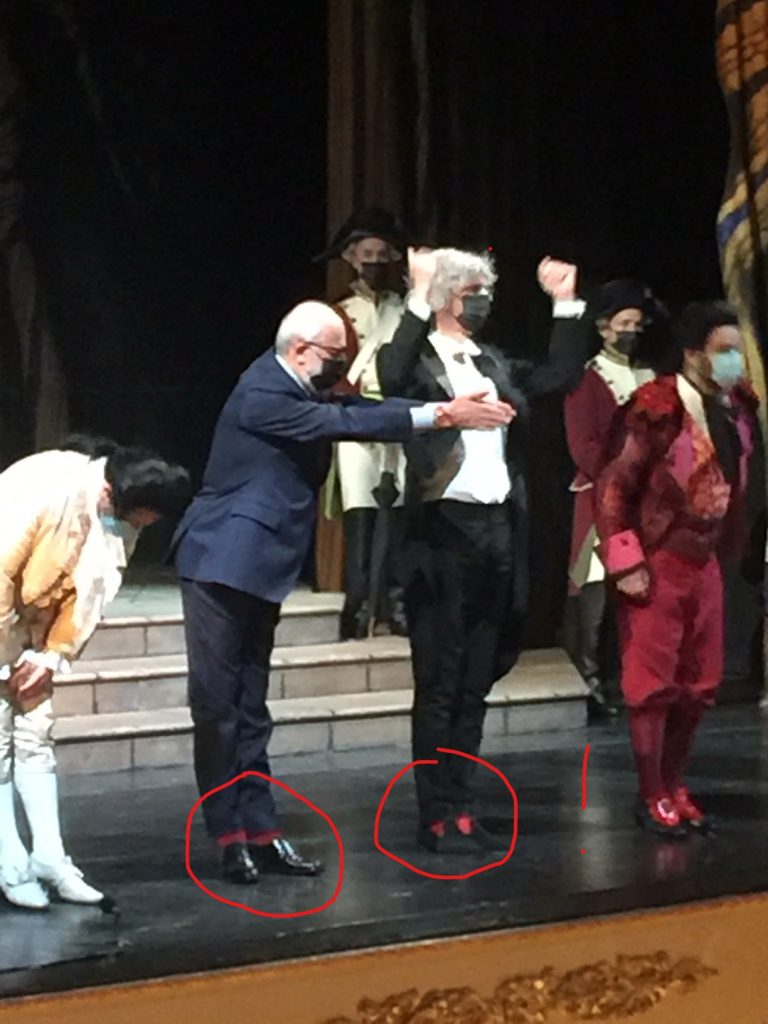
Another thing I really enjoy about performances at La Fenice is the total lack of pretentiousness on the part of the audience. At €200 and more per seat, you find only a handful of true opera lovers; and the majority, tourists who are either overdressed or underdressed. I simply adore the spontaneity of the international audience of Venice’s opera theater. They clap when they shouldn’t, often interrupting in the middle of an aria; they sleep through the less popular parts of operas that aren’t included in their “Opera’s Greatest Hits” car CDs; and they whistle in appreciation at the end of the show, unaware that in Italy, when you whistle at artists, it is solely to show your disappointment with their performance.
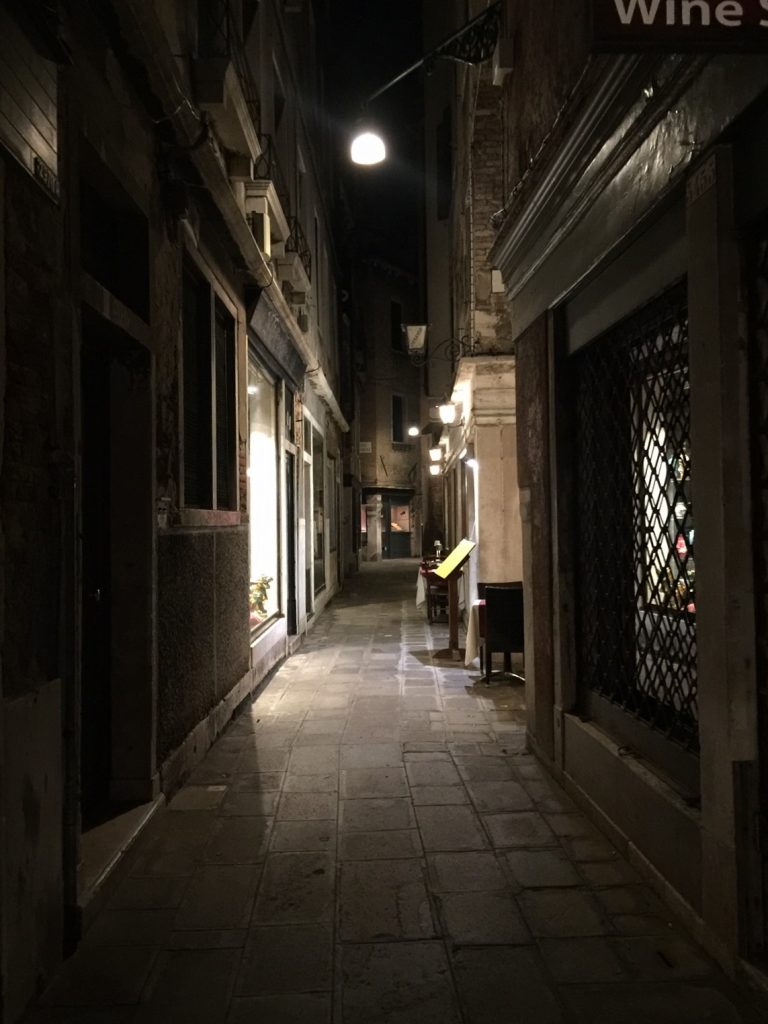
Little did I know Barber of Seville was to be the last opera for me. When I walked out of the theater, humming the popular Figaro aria, and ready for a dish of “sarde in saor” (impossible to digest but delicious!) I found myself in a surreal, deserted Venice. As if sensing the approaching lockdown, by 9:30 pm, everything was shut down. Not a soul in sight, even in the most popular squares. Luckily, I had some expired whole wheat crackers in my suitcase.
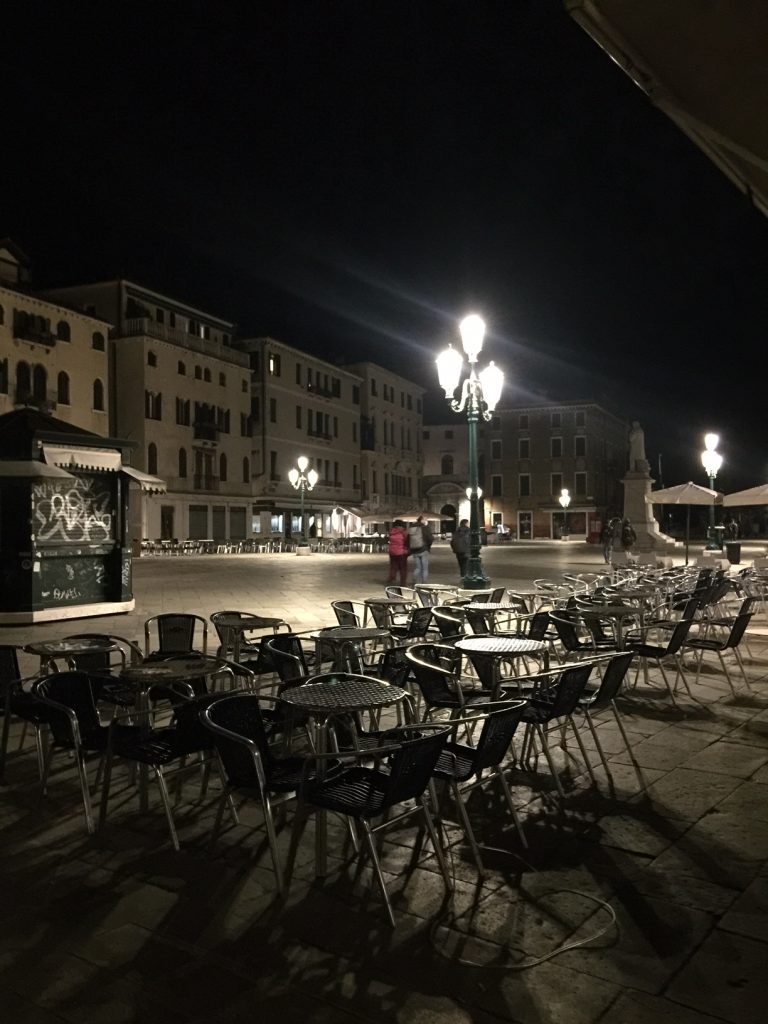
Meanwhile, the opera theater in Trieste managed to entertain its more mundane, definitely less colorful yet more discerning audience, with one last concert on Sunday, October 25, before the venue officially shut down. His voice trembling with emotion, Maestro Carminati said goodbye to Trieste’s public at the end of the performance. We can only hope it is not a final farewell.
